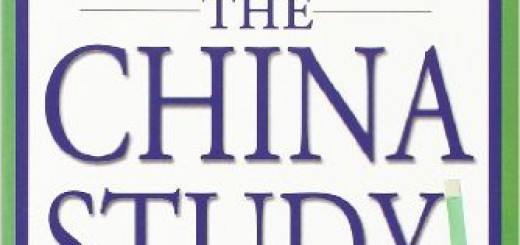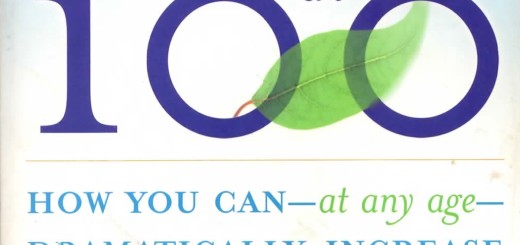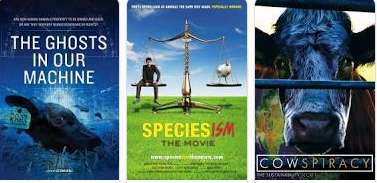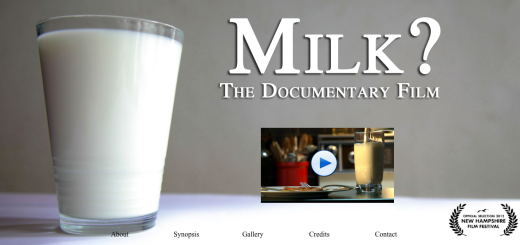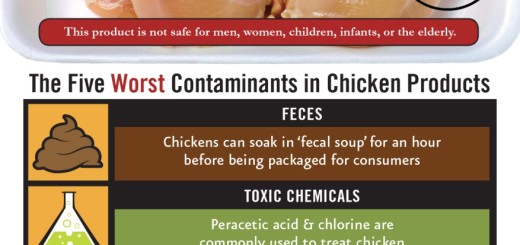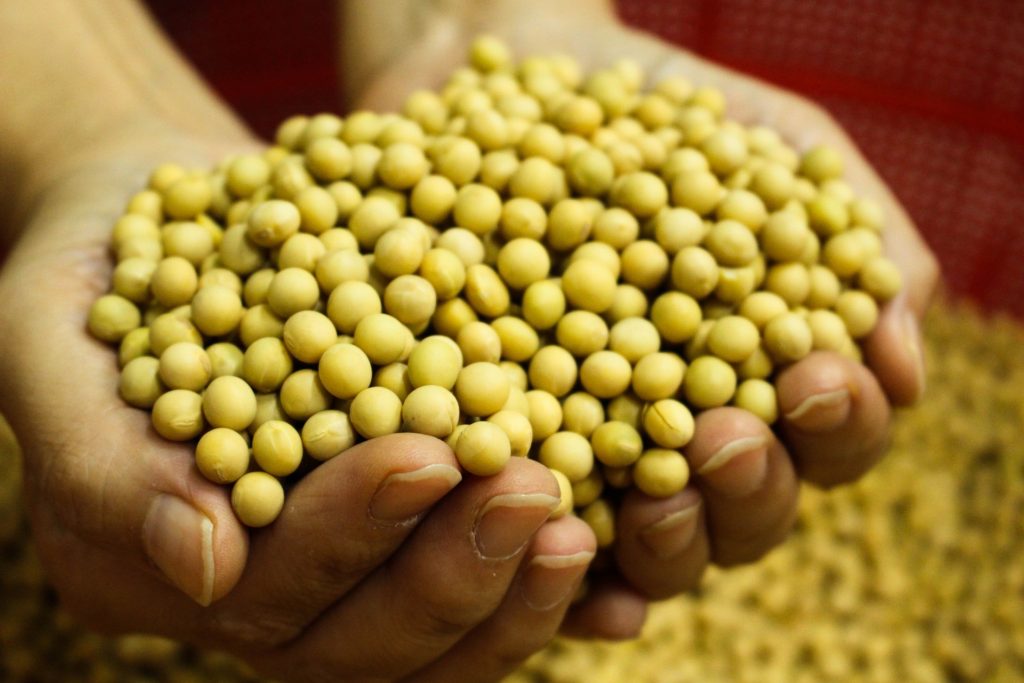
What is Soy?
Soy is made from soybeans, which is a legume that grows in pods containing seeds—or beans. Soy is a nutrient dense source of plant protein, rich in B vitamins, fiber, potassium and magnesium. Soy is considered a complete protein, unlike some plant proteins, and contains all nine essential amino acids that the body cannot make itself, but must be obtained from our diet. Soy foods are categorized as fermented—which means that the soy food has been cultured with beneficial bacteria, yeast or mold. And soy can also be unfermented—unfermented soy foods include: soy milk, soft tofu, soybeans, edamame, or a soy burger. Fermented soy foods include: cooked tempeh, natto, miso and soy sauce. It is thought that fermenting soy may make soy more easily digestible.
Soy is controversial because of conflicting conclusions about its benefits. But a growing number of peer-reviewed scientific and medical studies, and the majority of well-designed clinical studies and trials, conclude that soy is very good for your health, and has significant health benefits when eaten several times a week, especially when eaten as an alternative to animal meat and animal products. The USDA praises soy for its potential cardiovascular benefits, and its protection of several major organs in the body. The American Heart Association and American Cancer Society also support including soy in the diet for the health benefits listed further in this article.
The Overall Benefits of Eating Soy
- Soybeans are an excellent source of high-quality complete protein. This high level protein is similar to the protein found in some animal foods, but animal proteins contain high levels of saturated fat and dietary cholesterol that can cause chronic disease, stroke and heart disease. Research indicates that including more plant protein in your diet, versus animal protein, has clear cardiovascular benefits such as lowering blood pressure, saturated fat and cholesterol.
- Soybeans are considered a complete protein and have all nine essential amino acids needed for bodily processes.
- Soy protein like tofu that replaces animal protein—can help people to live longer indicated in an increasing number of scientific research studies. In one major study, the European Journal of Nutrition, found that in a short period of a few months, people who replaced animal protein with soy protein lost weight and dropped blood triglyceride levels.
- Soy foods are naturally cholesterol free and very low in saturated fat. As opposed to animal proteins that are high in saturated fat and cholesterol and actually can increase your risk of developing cardiovascular disease.
- Soy products will reduce low density lipoprotein (bad) cholesterol. Soy foods are an excellent source of polyunsaturated fat that has a number of heart health benefits, such as lowering cholesterol.
- Soy reduces the risk of osteoporosis-related hip fractures. In an American Journal of Epidemiology study, women who consumed at least ¼ cup of tofu per day averaged a 30% reduction in fracture risk.
- Soy will increase your fiber intake promoting a healthy gastrointestinal system. Increasing fiber-rich soy foods like tempeh, edamame, black soybean, and soy nuts will help you increase your daily dietary fiber intake.
- Soy foods are a good source of minerals and vitamins including B-vitamins, iron, and zinc. Plus, soy foods are enriched with calcium and vitamin D.
- Soy foods are a great source of phytochemicals, called isoflavones, that can prevent postmenopausal bone loss and certain cancers.
- Soy fights some of the most harmful effects of BPA or Bisphenol A exposure in a study at the Harvard T.H. Chan School of Public Health.
What the American Cancer Society Says About Soy
The American Cancer Society (ACS) says the health benefits of soy appear to outweigh any potential risk, and there is growing evidence that eating traditional soy foods such as tofu, tempeh, edamame, miso, and soymilk can lower the risk of breast cancer, because the isoflavones in soy actually block the more potent natural estrogens in the blood. The American Cancer Society promotes soy as an excellent protein source, especially when replacing animal proteins such as meat and cheese that are high in animal saturated fat. The ACS confirms soy foods have been linked to lower rates of heart disease and may even help lower cholesterol. The ACS says soy foods are healthy and safe. A 2017 American Cancer Society study found that a diet high in soy is associated with reduces all-cause mortality.
What the American Heart Association Says about Soy
The position of the American Heart Association (AHA) is that soy has a number of cardiovascular health benefits. The AHA advocated that eating foods containing soy protein to replace foods high in animal fats may prove beneficial to heart health. The conclusion of their most recent report published in 2006 highlights findings that indicate soy protein is found to have an average LDL or “bad” cholesterol-lowering benefit of approximately 3+ percent, lower than initially thought but very positive and far healthier than animal proteins that can and do cause heart disease.
Soy Reduces Cardiovascular Disease, Stroke and Coronary Heart Disease
Soy foods are generally considered good for the heart and blood vessels if they replace less healthful choices, like red meat and animal products. This is because soy is very low in saturated fat and delivers plenty of fiber, vitamins, minerals, and polyunsaturated fat. When soy replaces animal protein, it is shown to reduce harmful LDL cholesterol from 3-12%. Sustained over time, could mean a significant lower risk of heart disease, heart attack, stroke, and other forms of cardiovascular disease. Research indicates that soy can lower blood pressure as well, since soy is cholesterol-free and low in saturated fat. Whereas, animal proteins are high in saturated fat and cholesterol, and proven to increase your risk of developing cardiovascular disease.
A meta-analysis of 17 previous studies conducted by researchers in China concluded that eating more soy foods is associated with a significantly lower risk of cardiovascular disease, stroke, and coronary heart disease.
Multiple Studies have substantiated the benefit of reduced cardiovascular risk factors in groups that consume a high amount of soy, with a significant reduction in insulin resistance, inflammatory markers, and blood pressure. Plus, soy foods are high in polyunsaturated fat, which have excellent health benefits including lowering cholesterol. Soy foods also are high in Omega-3 fats that are linked to a lower risk of cardiovascular disease.
A major study found that people who ate soy foods three or more times a week had a lower risk for overall and all-causes of mortality—including mortality from heart disease—than those who consumed less or no soy.
There is also evidence that a higher intake of soy isoflavones via soy protein can modestly reduce blood pressure numbers, particularly in people who already have hypertension.
Soy Reduces the Risk of Breast Cancer and Has a Protective Effect
Women who include soy products in their meals, especially replacing meat and dairy, are less likely to develop breast cancer, compared with other women. A study conducted in 2008 at the University of Southern California, found that women who averaged one cup of soymilk or one-half cup of tofu a day have about a 30% less risk of developing breast cancer, compared with women who eat little or no soy products in their diet.
Several scientific studies have found a reduced risk of breast cancer recurrence with higher soy consumption, verses no consumption of soy. The American Center for Cancer Research confirms eating moderate amounts of soy foods does not increase a breast cancer survivor’s risk of recurrence or death. A 2009 study published in the Journal of the American Medical Association shows that soy products may reduce the risk of recurrence. In the Shanghai Breast Cancer Survival Study conducted over four years with a group of 5,042 women who were previously diagnosed with breast cancer, those that consumed soy products had a 32% lower risk of recurrence and a 29 percent decreased risk of death, compared to women with consumed little to no soy.
The phytoestrogens in soy may even prevent tumors in women with a genetic risk of breast cancer by “turning on” the BRCA genes that are responsible for DNA repair and work to protect women against breast cancer. In a study published in Omic: Journal of Integrative Biology, reveals adding soy to a diet actually turns on the BRCA protection that had been turned off by the cancer, thus suppressing cancer cell growth. To date, there is no research study that has found any negative effect with women who eat soy that have a history of breast cancer. Studies done that observe people consuming soy foods over time, show either a protective or neutral effect.
Scientists followed a multi-ethnic group of 6,000+ women with breast cancer for 9+ years, and found that the group who consumed the most soy isoflavones had 21% fewer deaths from all causes compared with those who consumed the lowest amount of soy. Soy was found to be a life-saver when it comes to breast cancer survivors. The study confirms longer lifespans for breast cancer survivors who did eat soy foods. In fact, research has found a 60% reduction in the recurrence of breast cancer with women who consumed the most soy isoflavones versus those who consumed the least. In another major study, The Shanghai Women’s Health Study, which followed 73,223 Chinese women for more than seven years, and is considered the largest and most detailed study to date of soy and breast cancer, found those consuming the most soy, had the least risk of developing breast cancer or having breast cancer return.
In addition, a study of Japanese women found that soy products can reduce the risk of fibroids that form beneath the uterine lining. The study found that the more soy the women ate, the less likely they were to need a hysterectomy. The phytoestrogens in soy seemed to counter the effects of a woman’s natural estrogens and are thought to “block” a woman’s estrogen’s cancer-inducing effects.
Soy Reduces Risk of Prostate Cancer
Several studies have shown, including a 2003 UCSF Study, there is a reduced risk of prostate cancer with an increased consumption of soy food and soy isoflavones. Moderate soy intake can lower PSA, or Prostate-Specific Antigens, that can signify the growth of prostate cancer. Plus, the incidence of prostate cancer is highest in Western countries that consume the greatest amount of meat and animal foods, and is lowest in Asian countries, where soy foods are a regular part of the daily diet. Soy isoflavones exert a protective effect against the development of prostate cancer. In numerous case-controlled and cohort studies, from the U.S., Europe, China and Japan, consumption of total soy foods was significantly associated with a reduced risk of prostate cancer.
Soy also doesn’t appear to negatively impact the testosterone-to-estrogen ratio in men or reduce fertility via lower sperm counts or erectile dysfunction.
Soy Reduces Risk of Memory Loss, Alzheimer’s, and Loss of Cognitive Function
Research is this area has revealed that eating soy foods may help prevent age-related memory loss or decline. In women, long-term low levels of estrogen after menopause can hurt cognitive functions like memory and learning. Some studies show a benefit with soy isoflavone supplementation and others show no effects. In a review of 13 randomized controlled trials showed that in half the studies, soy had a very beneficial effect on cognition in older women and men including memory function, but a few other studies didn’t show a benefit, which could be due to differing soy amounts or the types of cognitive tests that were used.
Soy Reduces Risk of Type 2 Diabetes
A new report in the Journal of Nutrition found that women with higher intakes of soy foods are at lower risk of developing Type 2 Diabetes.
Soy Reduces Risk of Osteoporosis and Prevents Osteoporosis
Random control trials and meta-analysis found that soy isoflavones significantly increased the bone mineral density by 54% and decreased the bone resorption marker urinary DPD by 23% compared to the baseline in women.
Soy and Hyperthyroidism
Clinical studies show that soy products do not cause hypothyroidism. But some studies show that patients with sub-clinical hyperthyroidism, when given soy supplements, can risk developing clinical hypothyroidism. In this group of patients, if they consume soy, it’s recommended to monitor thyroid function more carefully.
Soy Increases Fiber Intake
Eating soy is a great way to increase your fiber intake. Including fiber-rich soy foods like tempeh, edamame, black soybeans, soy nuts, and soy flour, can help to boost your daily dietary fiber. Fiber supports a healthy gastrointestinal tract, reduces cholesterol, and is associated with a decreased risk of developing cardiovascular disease.
It is always recommended to buy organic soy over non-organic, and look for GMO-free. This article is helpful in identifying both in a variety of soy products.
References
Straight Talk About Soy, Harvard School of Public Health, The Nutrition Source, 2018
Soy Foods: Benefits of Soy, Cleveland Clinic, Ohio, 2013
Soy and Health Update: Evaluation of the Clinical and Epidemiologic Literature, National Institutes of Health, Nutrients, 2016
Systematic review of soy isoflavone supplements on osteoporosis in women., National Institutes of Health, 2012
Antioxidant properties of soybean isoflavone extract and tofu in vitro and in vivo, National Institutes of Health, Agricultural Food Chem, March 2005
No Debate: Soy is Beneficial to Health, Neal Barnard, M.D., F.A.C.C., 2016
Settling The Soy Controversy, HuffPost.com, Neal Barnard, M.D., F.A.C.C., Contributor, 2010
The Risks and Benefits of Soy: Separating Fact from Fallacy, by Carra Richling on Dr. Dean Ornish Living website, 2018
Is Soy Good or Bad For Your Health? Healthline, Nov. 22, 2018, Melissa Groves
Is Soy Good or Bad For You? U.S. News & World Report, Feb. 5, 2016, K. Aleisha Fetters








